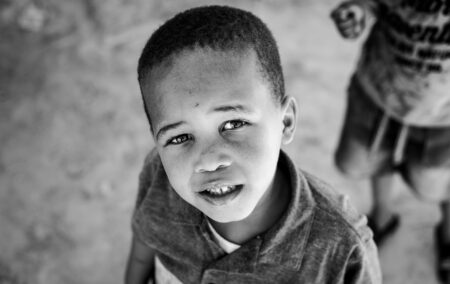Broad-Based Black Economic Empowerment (BBBEE) is the holy cow of South Africa’s public conversation.
The racially selective government programme is the single biggest hurdle to the country’s social, political and economic development, yet beyond the occasional mutterings at the fringes, it exists in a realm beyond fundamental dispute.
Indeed, refraining from criticising BBBEE in public is often regarded as some kind of signal of loyalty. But that supposed loyalty does great harm to the alternative non-racial liberal-democratic vision of what is possible in this country. Such an alternative is in danger of being squeezed out of existence by a policy which does no more than serve the material interests of a rapacious new power elite.
An entire generation has been schooled to see BBBEE as a non-negotiable element of South Africa’s social contract. ‘Oh, that’s all about redress, there’s nothing else to do but accept it’, is the refrain. This is not true. It can’t be about redress because it is impossible to draw a logical connection between discriminating in 2019 as compensation those who were discriminated against prior to 1994.
Neither was it the vision which animated South Africa’s democratic transition. It is surely the opposite of the United Democratic Front’s 1980s campaign for a ‘united, non-racial, non-sexist South Africa’. It is not the vision which animated Archbishop Desmond Tutu when he referred to South Africans as ‘the rainbow people of God’. It is the opposite of the society in which all were to be assessed on ‘the content of their character not the colour of their skins’, as promised by our constitutional negotiators in the early 1990s. In fact, what it most closely resembles is the system which it is supposedly intended to transcend – the cruel monstrosity that was the race-based, repressive system of apartheid.
Beyond re-racialising South Africa’s public discourse and fuelling the flames of bitterness, even violence, BBBEE has turned out to be a disastrous policy even on its own terms.
The prefix ‘Broad-Based’ suggests a policy intended to benefit a wide swathe of society. But South Africa is more unequal now than it was even when the National Party ruled. According to World Bank data, in 1990, the country’s Gini coefficient was 0.6 while today it is 0.63. BBBEE, with its habit of rewarding politically connected insiders, is a barrier to more inclusive economic processes and fails entirely to drive higher levels of social and economic participation. It restricts South Africa’s economic opportunities and has a direct link to the youth unemployment rate of 55 percent plus.
When first mooted in the late 1990s, advocates of BBBEE, whose number included Cyril Ramaphosa, did not foresee how all-encompassing and rigid it would become. The first empowerment charters were voluntary acts on the part of the private sector to show goodwill. Such a loose formulation was explicitly intended to do no harm to South Africa’s investment and growth prospects. But, as the system has become bureaucratised and entrenched, it has become much more damaging.
BBBEE is effectively a system of quotas, applied not only to hiring and promotion but most damagingly to ownership and investment. Foreigners shy away from a system where they are effectively required to give away 25 percent of their investment and, although they do not publicly speak about it, so too do established local firms. Talented individuals tend to avoid South Africa both because they fear discrimination, formal and informal, and because BBBEE has punctured economic buoyancy so extensively that better opportunities exist in all our competitors.
While BBBEE exists, South Africa has no chance of becoming the non-racial society so many have dreamed about. Its advocates say this is the end goal. But it has become obvious that the means to reach that objective are such as to ensure that South Africa cannot and will not ever achieve the dream.
The future of the entire nation has once again been appropriated by an elite of racially defined party loyalists.
If you like what you have just read, become a Friend of the IRR if you aren’t already one by SMSing your name to 32823 or clicking here. Each SMS costs R1.’ Terms & Conditions Apply.

